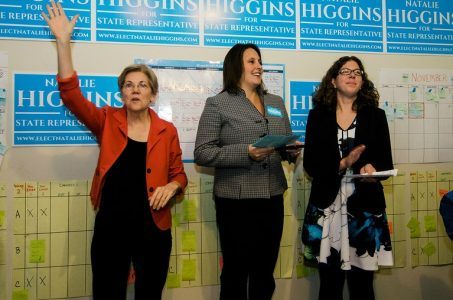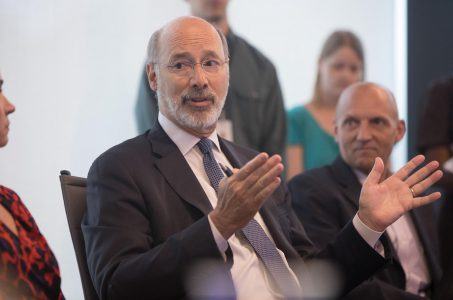Nationwide Election Results May Affect US Online Gambling
Posted on: November 5, 2014, 06:19h.
Last updated on: November 5, 2014, 06:21h.

Election Day 2014 didn’t feature a referendum on Internet gambling, nor did anything earth-shattering occur that will forever change the gaming landscape in the United States.
Still, there were a number of local results that were of interest to those who care about gambling issues, and one overarching storyline that could shape the movement of the debate over online gambling for the next two years.
That big story, as you might have guessed, was the Republican takeover of the Senate.
While final results (including a runoff election and a decision by Independent Senator Angus King on which party to caucus with) won’t be known for some time, the GOP has clinched at least 52 seats in the Senate, one more than was needed in order to take the majority.
Republican Majority and Online Poker
While this shouldn’t incite panic among those who enjoy online gambling, the Republican majorities in both houses are worth keeping an eye on. Thanks to a plank in the national Republican platform and the support of Las Vegas Sands Chairman and CEO Sheldon Adelson, the most vocal voices opposed to online gambling tend to come from the GOP. The new majority could lead supporters of the Restoration of America’s Wire Act to try to advance the bill in Congress.
However, the chances of such a bill passing are still rather slim. Not everyone in the Republican Party is in favor of an online gambling ban, and even many of those that are may not think the issue is worth fighting over, as it is hardly a major consideration among the general public. While those in favor of a ban might be able to court enough Democratic support to offset the losses in their own party, that’s far from certain, and the prospect of a split within the GOP on the issue might be enough to stop it from ever gaining any momentum.
Massachusetts Casino Repeal Defeated Handily
In more local results, there were two ballot initiatives of interest to the gaming industry, one on each coast. On the East Coast, perhaps the highest-profile gambling battle of the year took place in Massachusetts, where anti-casino activists were hoping to repeal a law that allowed for the licensing and building of three resort casinos in the state, along with a slots parlor. As recent polling suggested, the anti-casino forces came up well short, with 59 percent voting “No” on the repeal.
Still, state officials acknowledged that the significant portion of the population that was against their efforts had made their voices heard.
“We realize that approximately 41 percent voted in favor of the ballot initiative [meaning for the repeal], and it is our job to continue to earn the confidence of all the people in Massachusetts – proponents and opponents alike,” said Steve Crosby, chairman of the Massachusetts Gaming Commission.
Meanwhile, voters in California rejected Proposition 48, a measure that would have allowed the North Fork Rancheria Band of Mono Indians to build a major casino about 40 miles away from their reservation. Had the proposition passed, opponents said it would have set a precedent allowing tribes to build gaming facilities far beyond their lands.
“This vote no puts the ball squarely in the state Legislature’s court: they now can make a consistent policy on tribal gaming,” said Cheryl Schmit, director of Stand Up for California, a group opposing the proposition.
Some gubernatorial races may also have an impact on the future of both land-based and online gambling in various states. Perhaps most notably, the re-election of Florida governor Rick Scott in a tight race over Democratic challenger Charlie Crist was seen as a poor sign for online gambling in the state, as Scott has been a supporter of Adelson’s efforts to ban Internet gambling.
Related News Articles
Switzerland Legalized Online Gaming Kickoff Set for New Year’s Day
Most Popular
Mirage Las Vegas Demolition to Start Next Week, Atrium a Goner
Where All the Mirage Relics Will Go
Most Commented
-
Bally’s Facing Five Months of Daily Demolition for Chicago Casino
— June 18, 2024 — 12 Comments -
Chicago Pension Mess Highlights Need for Bally’s Casino
— July 2, 2024 — 5 Comments
















No comments yet